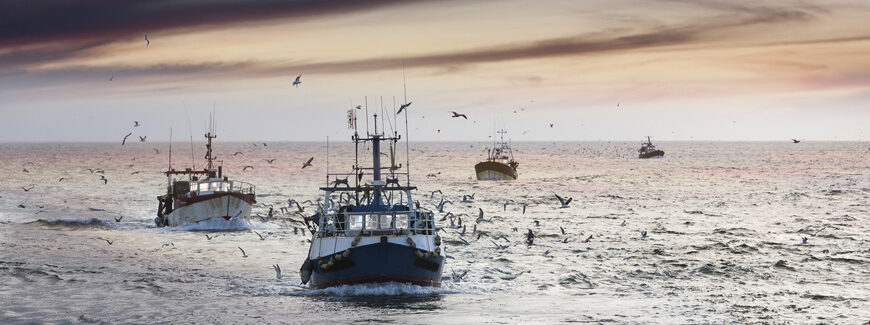Rep. Mary Peltola’s reputation as an advocate for fishing and Native Alaskan fishing communities was never more evident than with the introduction of her Fisheries Improvement and Seafood Health (FISH) Act in June 2024.
At a time when more and more legislation is introduced to do nothing more than “send a message” about the sponsor’s point of view, Rep. Peltola’s legislation is a substantive approach to dealing with some of the current and future challenges in federal fisheries management.
The U.S. has reaped the benefits of nearly 30 years of improved management of our fisheries by virtue of the Magnuson-Stevens Fishery Conservation and Management Act (Magnuson-Stevens or MSA, for short). Unfortunately, the MSA has not been updated in more than 10 years, and some changes are needed.
Fisherman and fishing-dependent communities are weathering a sea change as the growing impacts of global climate change are increasingly evident. Improving how we manage our marine resources needs to adapt to meet the emerging ecological conditions and the challenges and opportunities U.S. seafood producers face in the domestic and global seafood trade. MFCN believes it is urgent to start addressing those challenges now.
Rep. Peltola’s bill recognizes the changing dynamics in fisheries and the waterfront and takes significant steps toward addressing these challenges in the future management of our ocean and fisheries. The FISH Act will accomplish this with three sections to this bill.
Resilient Fisheries
The FISH Act directs NOAA to create the “Fisheries and Ecological Resilience Program,” with its own program director, to better understand, assess, and anticipate future ocean conditions and their impacts on fisheries and ocean ecosystems. The bill proposes working with fishermen, academic institutions, NGOs, and federal agencies to improve quantitative and qualitative data and provide better assessments of the changing ocean on fish stocks. This new program would develop new tools, processes, and support systems on the management level and coordinate with other government agencies to ensure high conservation and management standards in response to changing environmental and ecological conditions. The Fisheries and Ecological Resilience Program would also assess how changing oceans and fisheries would affect coastal communities, economies, and traditional ways of life and would engage fishing communities and state, local, Tribal, and community leaders to educate them on these impacts.
Why it’s important
To ignore the changes happening across the planet is unacceptable. To take meaningful action requires information and government-wide coordination. This bill provides specific, actionable steps that can be taken to address the changes happening in the ocean and in our fishing communities.
Competitiveness of domestic seafood producers in domestic and global seafood trade
The second part of Rep. Peltola’s FISH Act addresses the need to have a clearer picture of the challenges and opportunities U.S. seafood producers face in the domestic and global seafood trade. To improve the competitiveness of the U.S. seafood industry, the FISH Act seeks an initial report to Congress, followed by quarterly updates, to compare our country’s laws, regulations, and policies that impact our own seafood production costs to other seafood-producing countries, and also analyze our competitiveness in these markets. The report would include an inventory and assessment of federal programs, including the Seafood Inspection Program, to help manage costs, facilitate, incentivize, and modernize domestic capacity, and facilitate domestic and overseas market access for U.S. seafood producers. Additionally, the report would provide recommendations for a new national seafood trade policy, which would identify trade barriers, create a strategy for enforcing violations of trade agreements, and identify like-minded trading partners to help with trade disputes.
Why it’s important
Our fishing communities are an important part of our national economic engine. Ensuring our domestic fishermen, processors, and sellers are competitive in both the domestic and global marketplace is essential to that economic activity. This part of the legislation would provide important and much needed information on U.S. seafood competitiveness in domestic and global seafood trade.
Ecological and environmental conditions
The final section of the FISH Act amends the MSA by requiring consideration and accounting in all fishery management plans “for the effects of changing ecological and environmental conditions on the fishery.” The bill would also require fishery management plans to describe how management measures would address the changing conditions.
Why it’s important
Effectively managing our marine resources is at the heart of the MSA, and the fishery management plans are a critical element. It only makes sense to be sure changing ecological and environmental conditions are addressed in those plans.
Legislation like this starts the conversation on Capitol Hill, creating the opportunity for stakeholders – be they commercial interests or seafood consumers – to weigh in on ways to improve the sustainability and productivity of our marine resources.
Are conditions in Congress ripe for passing this bill? Of course not. But only someone wholly ignorant of the legislative process would dismiss Rep. Peltola’s efforts. At a time when Congress struggles to pass legislation, it is important to acknowledge the value of starting the process. Legislating can be a long and winding road where the proverb, “there’s many a slip ‘twixt the cup and the lip” is apropos. Waiting for perfect conditions to offer proposals is an abrogation of responsibility. Fortunately, Rep. Peltola takes her job seriously, to the benefit of our marine resource and coastal communities that rely on them.


